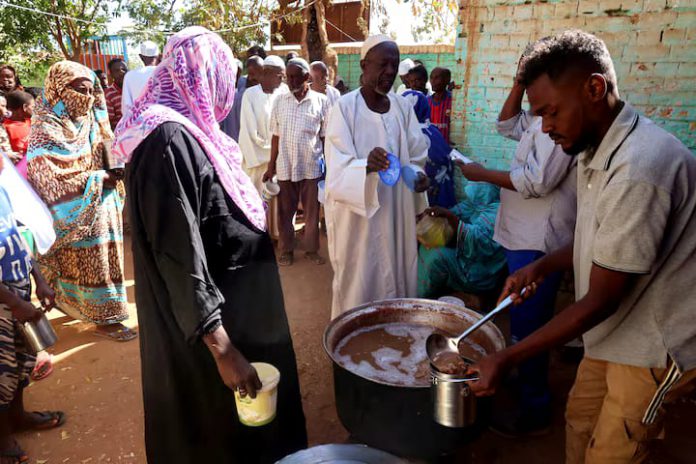Médecins Sans Frontières (MSF) on Wednesday said that pregnant women, mothers and newborn babies are dying at a shocking rate in Sudan’s South Darfur region, adding that thousands of malnourished children are on the brink of starvation
The health crisis in South Darfur is one of the worst of its kind globally and is being driven by the conflict between military factions that broke out in April last year, MSF said in a report.
“The situation in South Darfur is a snapshot of what is likely unfolding at dreadful proportions across war-torn and isolated areas of Sudan,” the report said.
MSF said it had recorded 46 maternal deaths in two South Darfur hospitals that the charity supports from January-August and 48 deaths of newborns from sepsis in the same hospitals from January-June.
About one-third of children under two years old screened in South Darfur in August were acutely malnourished, more than double the World Health Organization’s emergency threshold, it said.
More than 8% were suffering severe acute malnourishment, a common cause of death.
“Multiple health emergencies are happening simultaneously with almost no international response from the U.N. and others,” Dr Gillian Burkhardt, an MSF sexual and reproductive health manager in South Darfur, said in a statement.
“Newborn babies, pregnant women, and new mothers are dying in shocking numbers.”
The report said conflict and displacement were forcing women to give birth in unsanitary conditions in areas where they lacked access to healthcare and medicine.
South Darfur hosts the highest number of displaced people in Sudan, according to the International Agency for Migration.
The state capital Nyala, Sudan’s second largest city, used to be an aid hub for the region, but most humanitarian organisations have left. The RSF took control of the city last October.
MSF, however, called on the United Nations to “act decisively to prevent further loss of life in Darfur”.
The U.N., which is hosting a ministerial meeting with key donors and regional powers on Wednesday on the “cost of inaction” in Sudan, says underfunding, insecurity and restricted access have hampered aid efforts.
The war between Sudan’s army and the paramilitary Rapid Support Forces (RSF) has forced more than 10 million people to flee their homes, left much of the capital city devastated by fighting and triggered waves of ethnically-driven violence in Darfur.
A global hunger monitor has issued a rare confirmation of famine in North Darfur’s Zamzam camp for displaced people and warned that 13 other locations in Sudan are at risk of famine.










